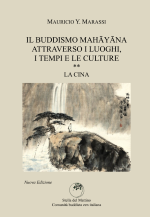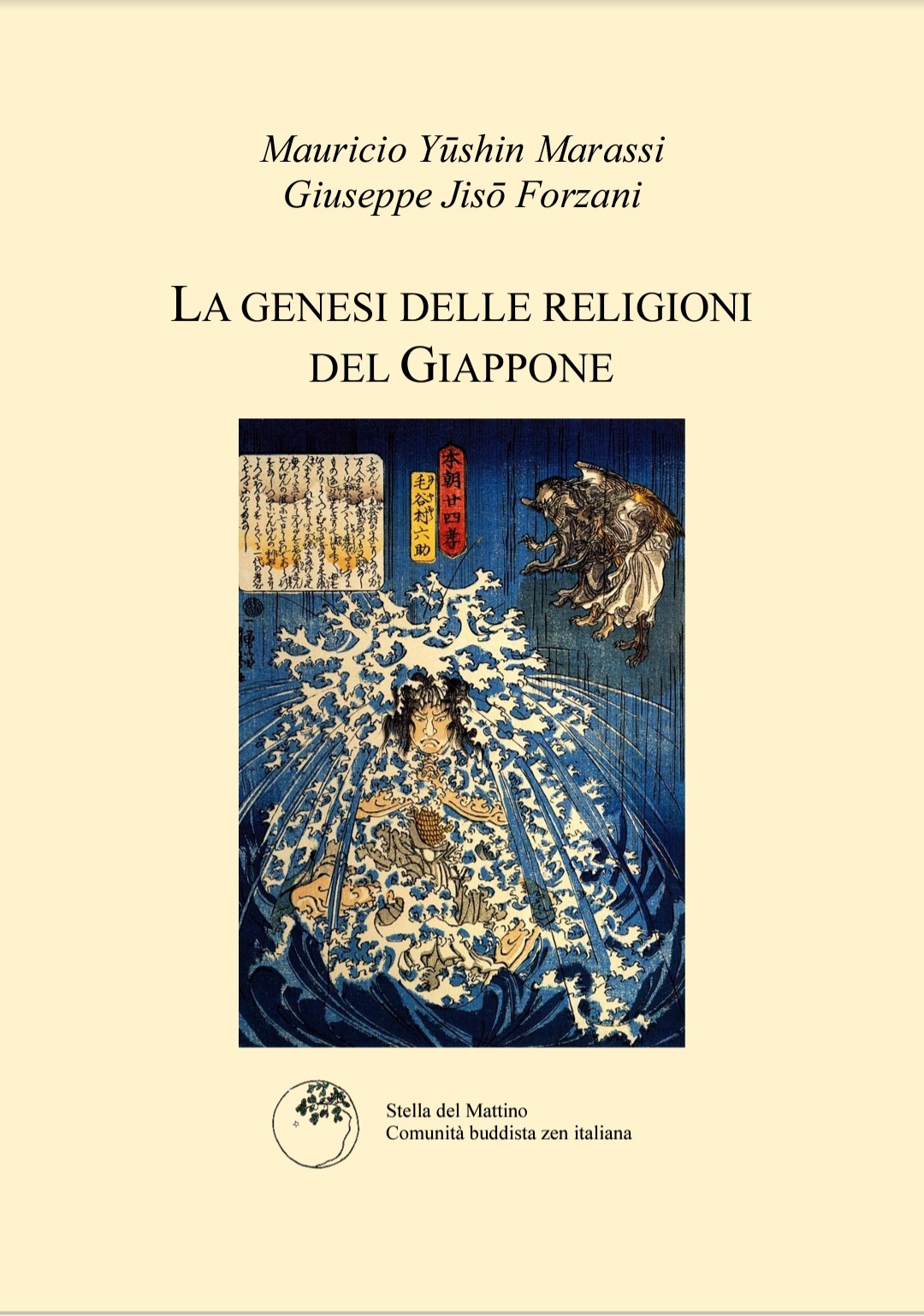A European proposal
I. The dominance of the European culture in the world
While protecting, or trying to protect their traditional ways of life, even Eastern countries are now adopting the style of economic, social and political development that Europe has invented and spread throughout the world. At the same time, a growing number of people, particularly in Europe and the USA, are becoming persuaded that that type of development is in crisis. Perhaps it has run its course, in any event it has lost its freshness and its capability to renew itself. The awareness of this crisis is one of the factors that motivate many Europeans to approach Buddhism.
The crisis of the West can be interpreted as the failure of its success. In the so-called first world (Europe, the USA and their Eastern outgrowth, Japan) the Western civilization has now reached the goals it set to itself centuries ago, at the times of the great American and French democratic revolutions. It was from that point on that it began turning its course gradually away from the path it had followed for centuries before, in the ancient times and in the Middle Ages. In fact, the moral compass of the earlier European civilization was drawn from Christian eschatology. It was the vision of the city of men being built here and now with the city of God as its model, all the while waiting for God’s revelation of His divine plan.
After the moral thrust of that idea had spent itself and the traditional order that was based on it had come apart, a new, man-centered conception of progress came into existence. This new conception encouraged man to seek emancipation from his material and spiritual conditions through the tools of reason: and to that end, it placed emphasis on the individual, on technical development and on the pursuit of wealth. The yearning for equality and communal solidarity inherited from early Christianity lived on, to some extent, and eventually fed into the great social movements of the XIX century, but man’s spiritual dimensions become weaker and he lost the sense of his right place in nature.
The history of the XX century is characterized by descent into the horror, perversion and debasement of the totalitarian utopistic theories, at the center of which is the calamity of World War II. From this maelstrom the only victor to emerge was a short-sided and anomic development model whose only aim was to generate more and more material wealth. The operational instruments for this vision were the primacy of the economy over anything else – primacy justified by the results it achieved, the satisfaction of material needs – the development of technology, pushed to the point of presenting itself as a way to go beyond the limits of human nature and the spread of majority democracy, seen as a way to build consensus and keep social conflicts manageable.
The short postwar euphoria soon manifested itself for what it was: drug-induced. Machiavelli’s formula was turned on its head, it were the means that justified the ends.
From a tool to satisfy man’s needs, the economy becomes an end in itself, while man turns into a cog of this endlessly producing machine, and as an ever-dissatisfied consumer of goods, of himself and of the environment. Material techniques, from tools that allowed traders and craftsmen to realize the dreams and visions of man, are on their way to becoming industrial technologies the only aim of which is to speed up and improve the efficiency of the production processes that satisfy man’s artificial needs, under the assumption that every problem may be solved by the possession and consumption of goods. Majority democracy begins placing emphasis on responding to “popular will”, measured only in term of the number of votes, and ends up manipulating consensus, idolizing opinion polls and keeping communication under control. Reality tends to coincide with the narrative of those who hold power at the moment.
This strategy is successful. We all, in a way or another, take part in this system, and give our contribution to this self-referential process. But this, which could be thought of as a success, is instead a true, unmitigated, failure because it is not the realization of a vision or the attainment of a goal we all share, with us, fully aware pilots at the helm, but, instead, it is the mechanical and choral repetition of the same mechanism.
Instead of being happy because our goals have been attained, we feel an individual and general malaise, a sense of uncertainty that feeds dark fears, an existential bewilderment of which we ignore the source and do not see the end. This is the heart of the crisis: it is the feeling that we are in a blind alley, unable to understand how we got there, and to imagine how we can get out of it.
II. In this context, what can be the function of Buddhism?
Because it cannot escape from itself, Western civilization cannot escape from the global crisis in which it finds itself. It cannot see itself from the outside in, and cannot, therefore, understand what is the matter. It observes itself from within and goes around in circles, it is like a dog chasing its tail. It needs an “outside” viewpoint. It needs an observer who points out where it lost its way, and only an observer that lives “outside” can do that. By virtue of having grown into shapes distant and different from those that have developed within European and Western cultures, Buddhism can perform this function, because it is at the same time already present in Western societies, but not yet fully integrated into their processes.
From a Buddhist point of view, it can perhaps be argued that the spiritual crisis of the West started with Christian religious experience shedding its mystical dimension and focussing almost fully on theology. In the mystical experience, God and Man are One: this is its distinguishing trait. In his Confessions, St. Augustin writes : “You are more inward to me than my most intimate part”. But Christianity has gradually betrayed its original experience and separated God from Man and Man from God. The very formula of the dialogue, the fact that Man addressed God with “You”, while and in spite of declaring that Man and God are one and the same, contains the seed of separation. To place God and Man in relation one to the other, even if it is only a trick of the language to express the inexpressible, creates a space that generates a separation in need of healing and bridging.
The act of speaking to God, saying “You” to Him, contains the seed of the possibility of building up the “I” who speaks. In this way, for Man, God becomes an object (even if interior), an object face to face with a subject, Man. This reinforces the process by which the “I” acquires an independent, autonomous essence: the process of ontologization.
This process is characteristic of modern Western philosophy since its very beginning, because one of its basic axiom is that the being exists because it thinks, because it is aware of being. As a result, Man becomes every day more the concept he has of himself because self-consciousness is what allows man to recognize himself. The apex of this process is the Cartesian philosophy, which posits very forcefully the identity of being and thinking: even the being of God is affirmed and certified on the basis of human thought.
The uncreated creating God becomes a creature of human thought. The concept of God as a person, which is meant to allow his acting in history and his relation with man, makes God a sort of alter ego, who, in the representations made of him, looks like a personal super-ego, with humanlike and idealized features. Man is no longer made after the image of God, but God is made after the idea that man has formed of him.
In the mystical experience, God speaks to Man through silence. The very word describing that experience shows it (mystical derives from the Greek verb muein – to keep silent). Silence is God’s word. While the word, any word, great and powerful as it may be, is measurable, silence is neither small not big, it is unmeasurable. Man’s listening to silence is letting go of every thought, idea, concept – in the face of God’s silence, man cannot but keep quiet. God’s silence implies the silence of the “I”. It annihilates the “I” and therefore, renders incommensurate also the man who is listening.
Christian theology has taken the opposite path. It has reduced God to an idea, has claimed to think the unthinkable and to speak the unspeakable: God has become the thought of God, and therefore, the thinking “I” has been left unscathed, nay, has been strengthened beyond measure. Here begin the individualism and relativism that the theologians and the hierarchy of the Catholic Church so strongly deplore today.
Se volete, lasciate un commento.
You must be logged in to post a comment.







